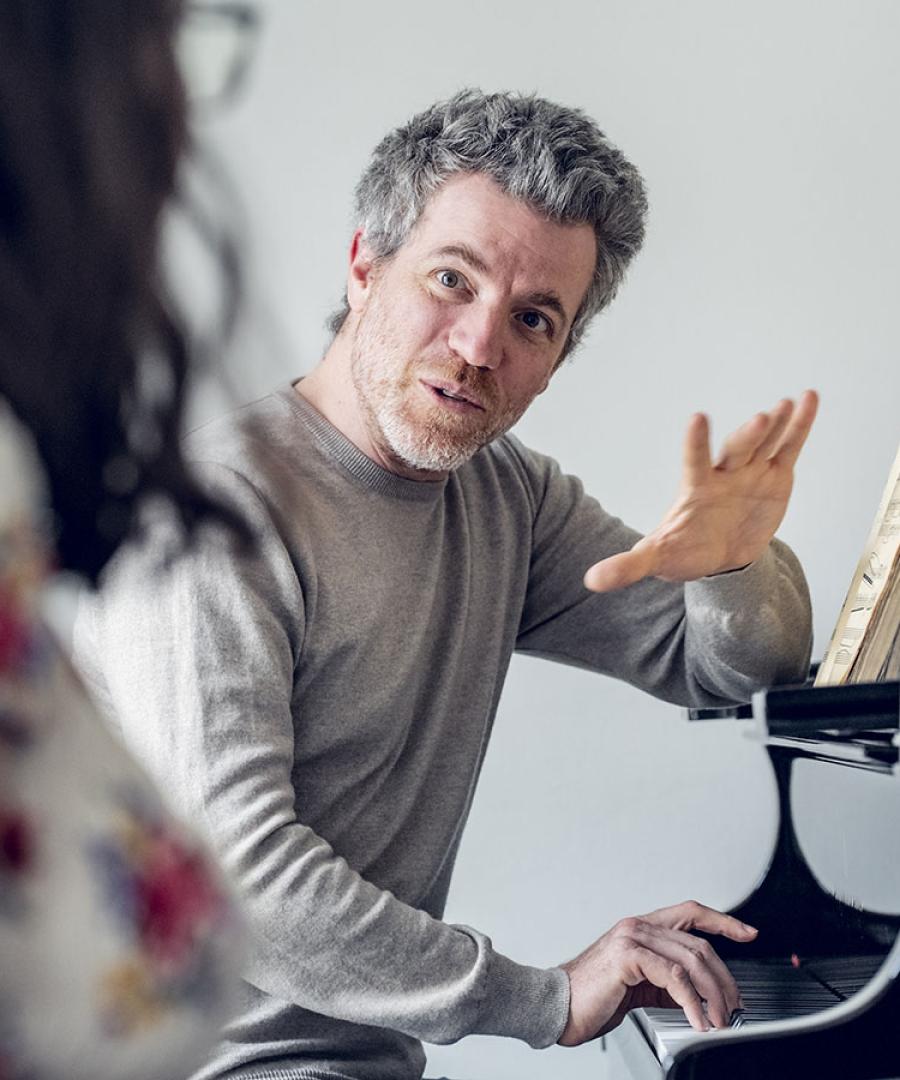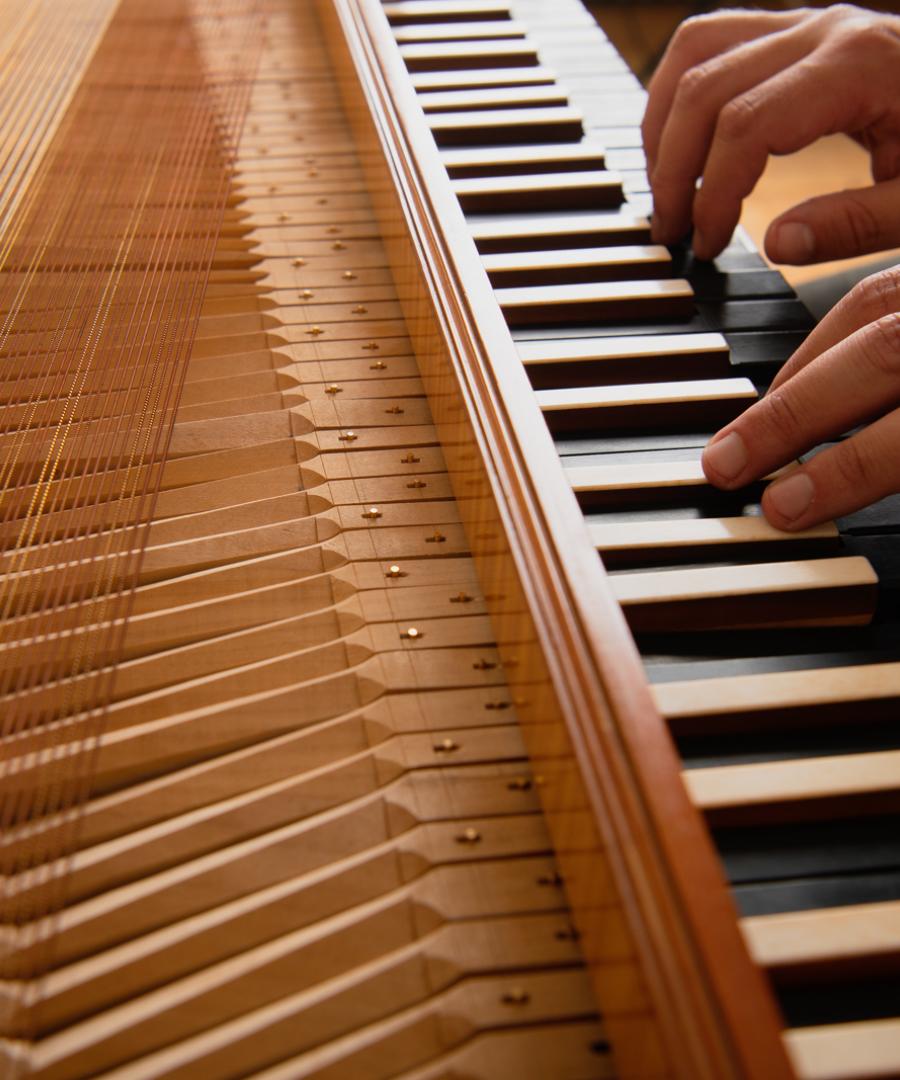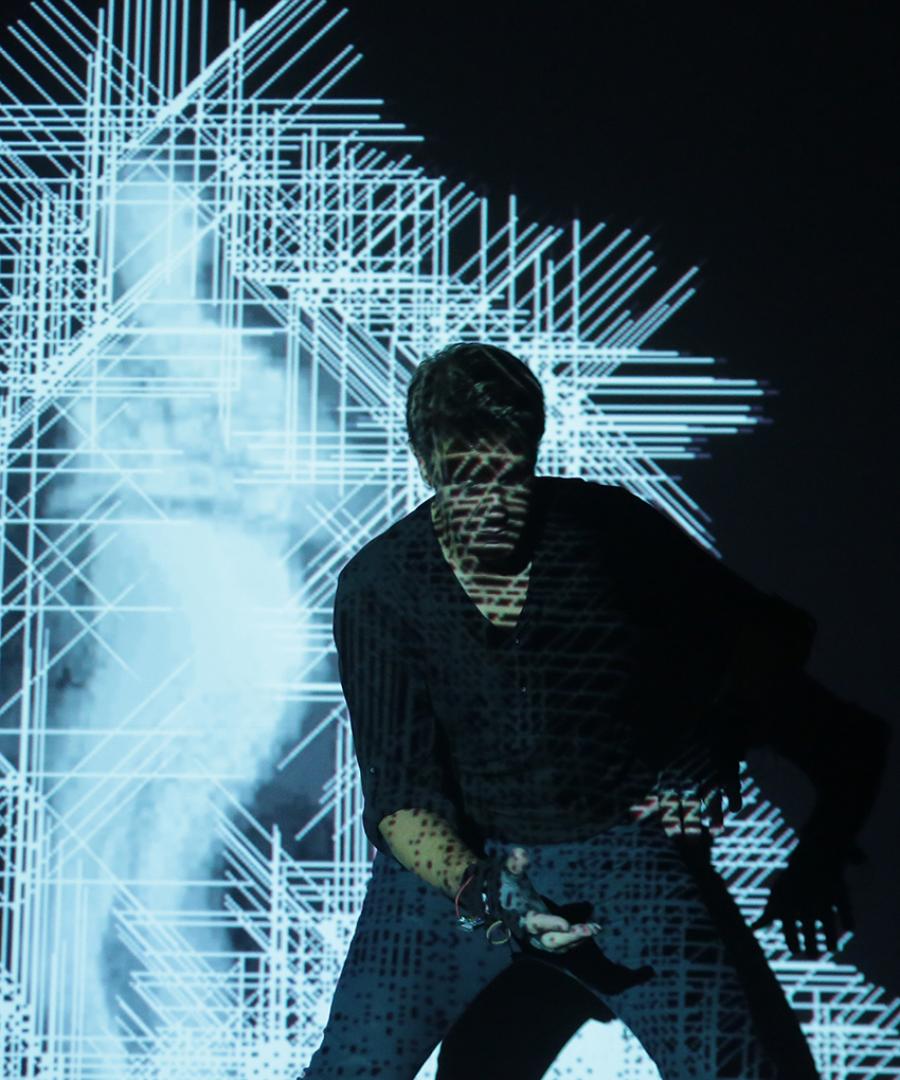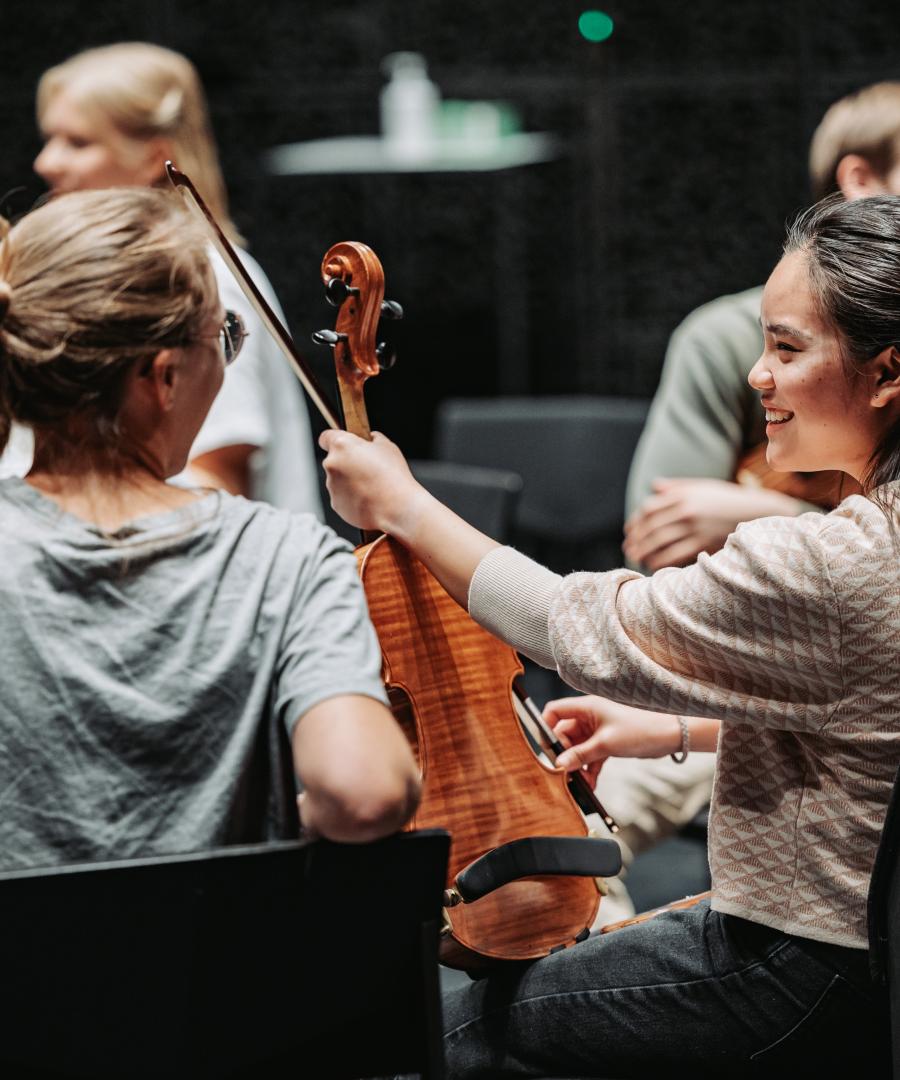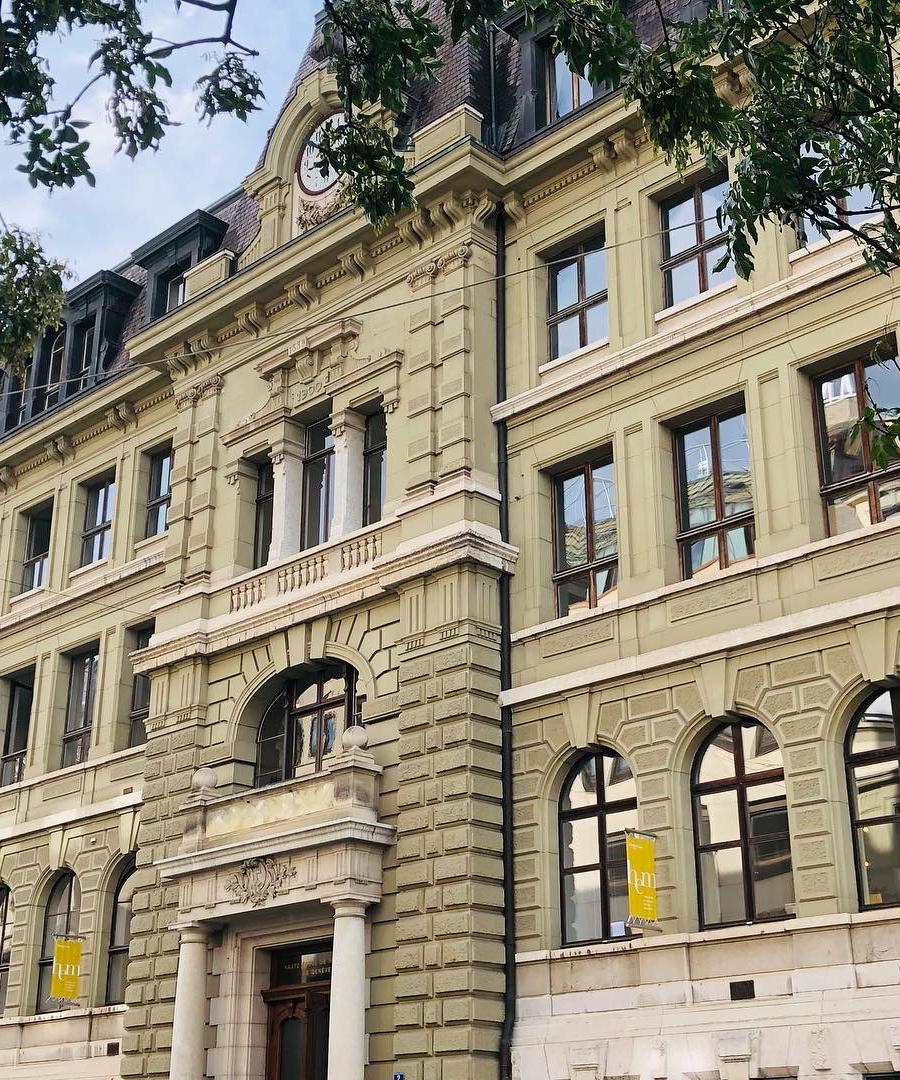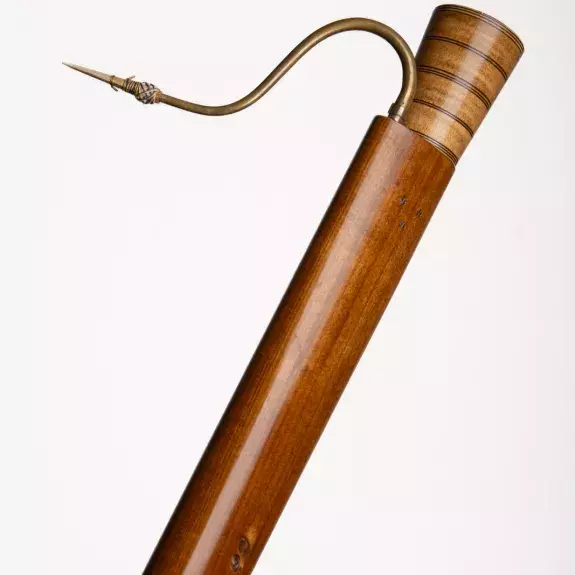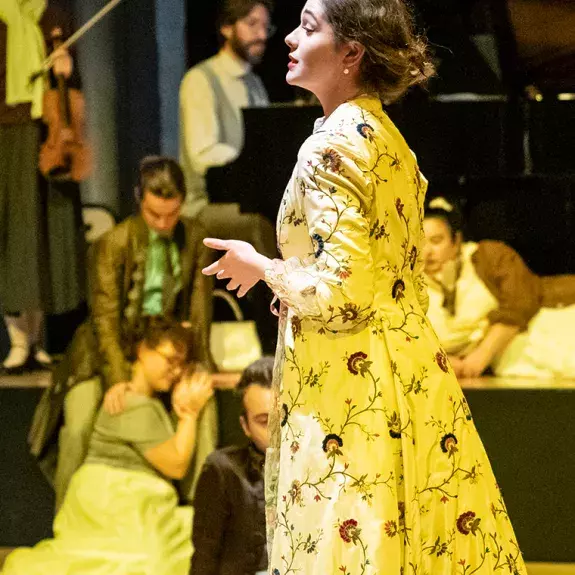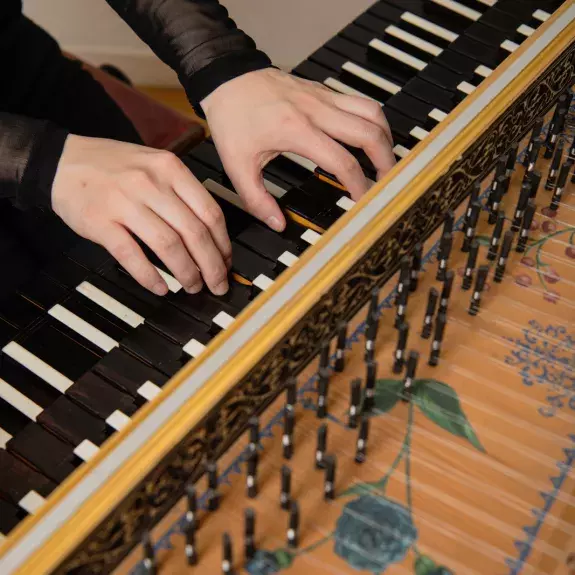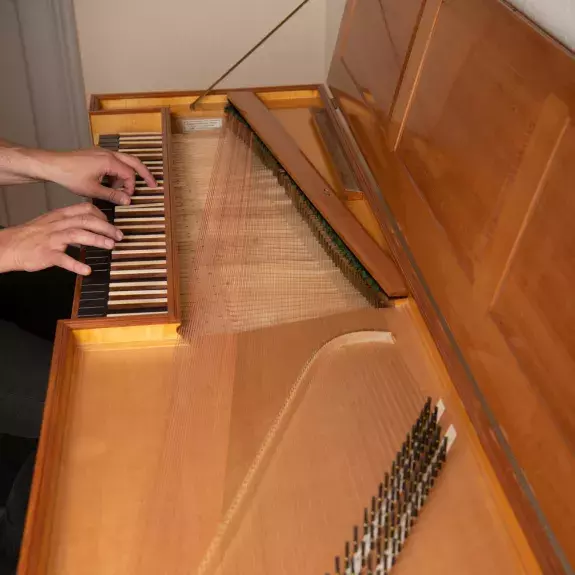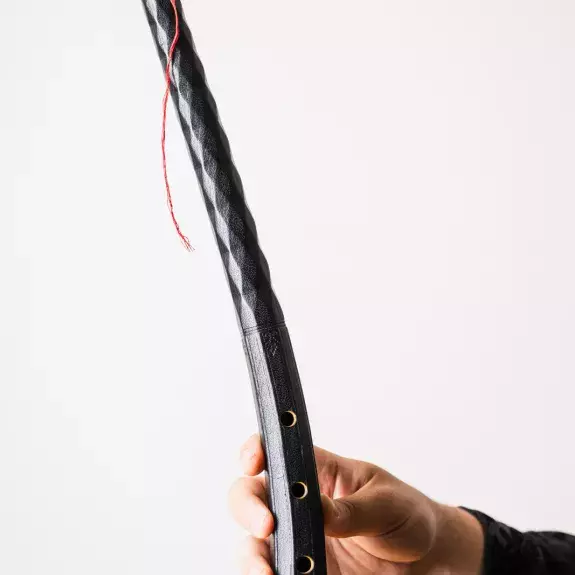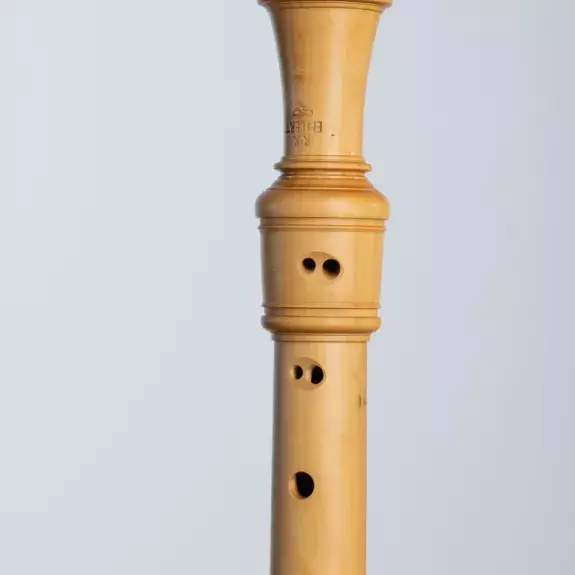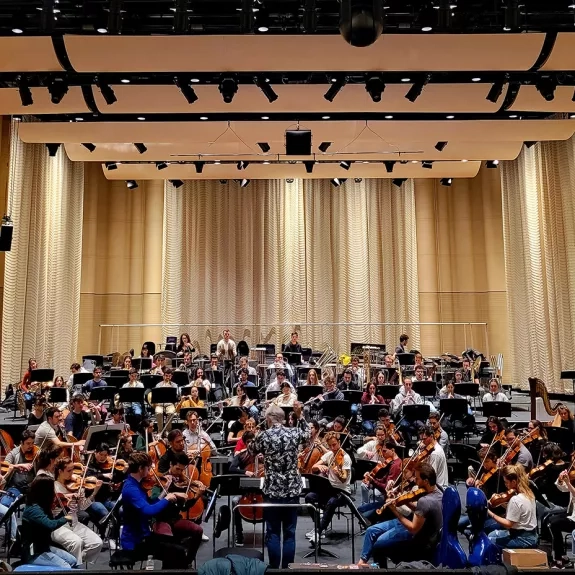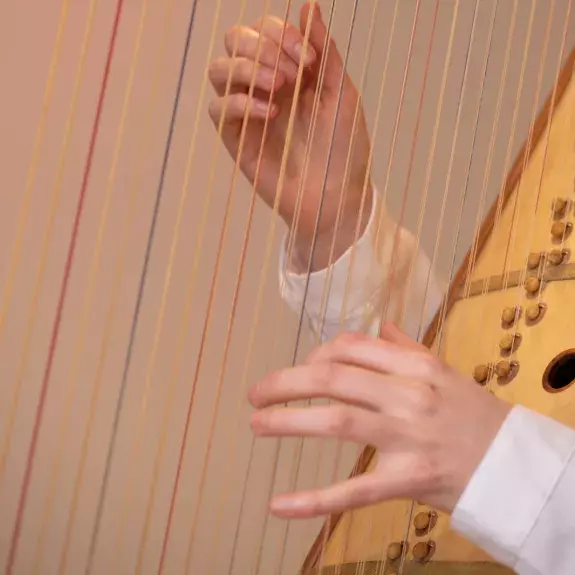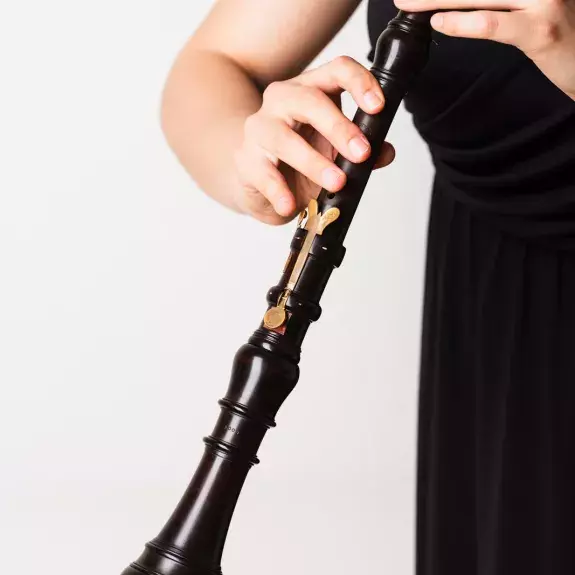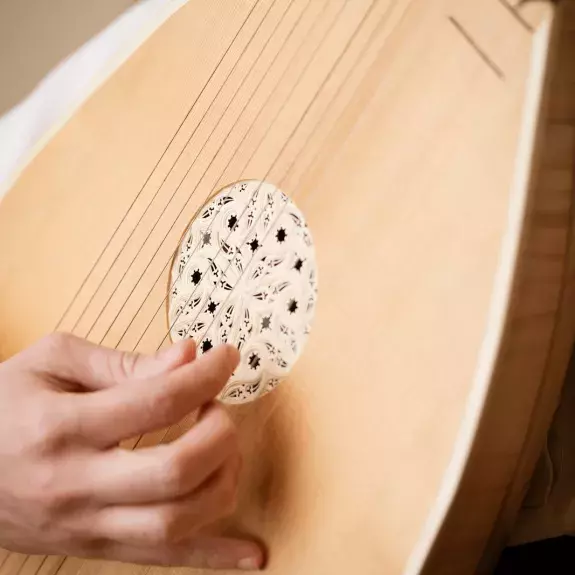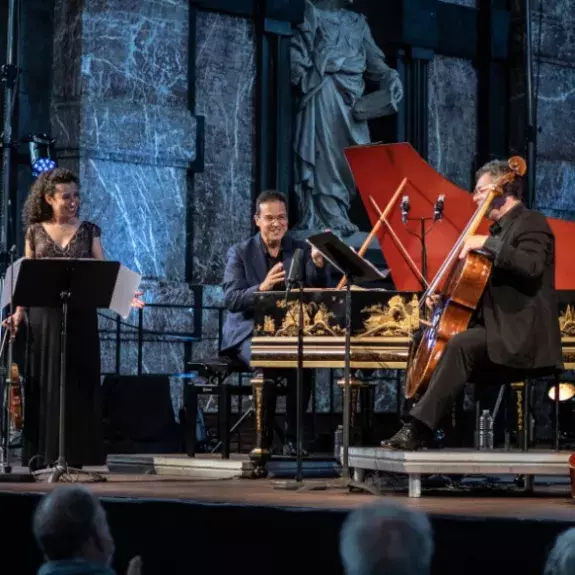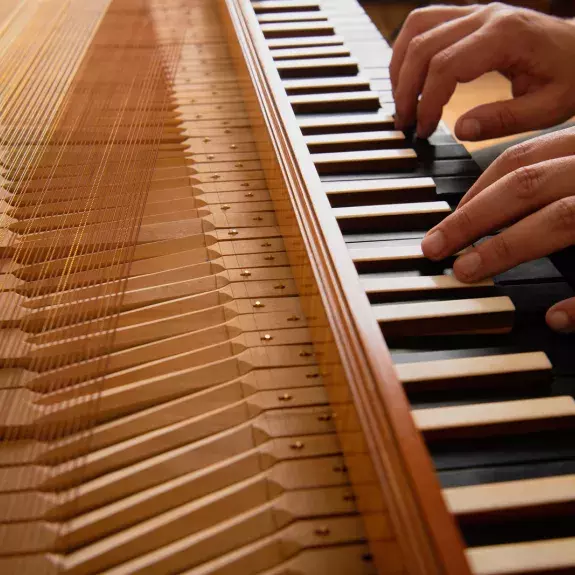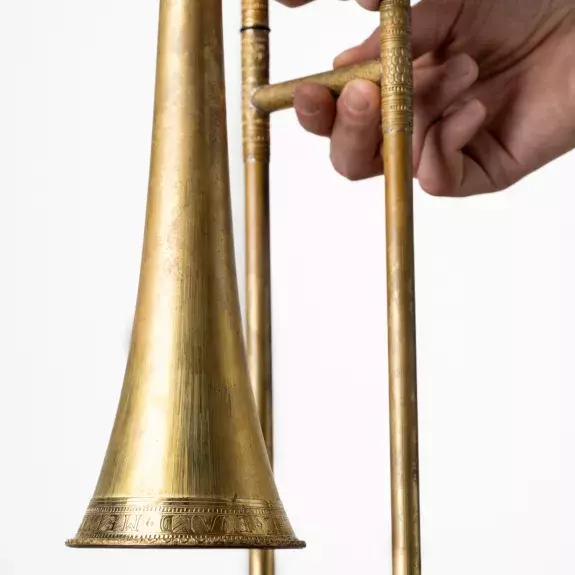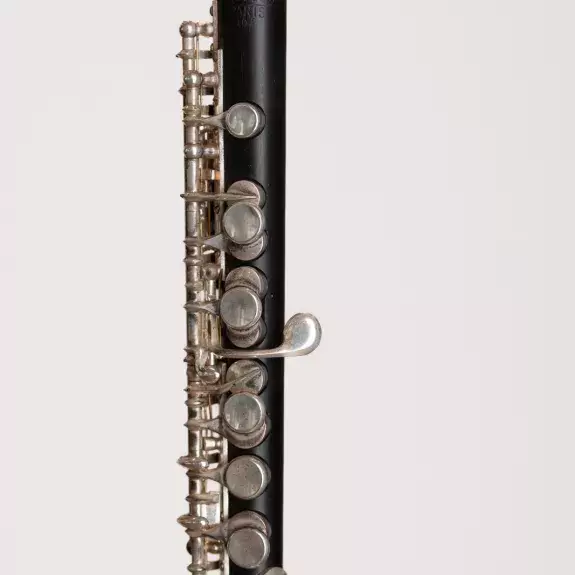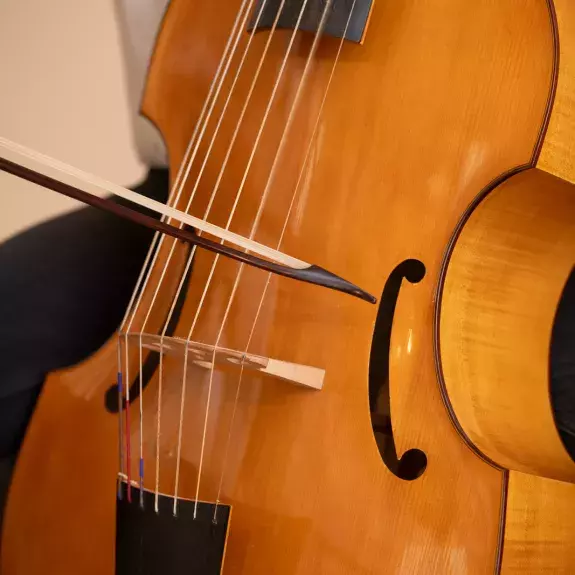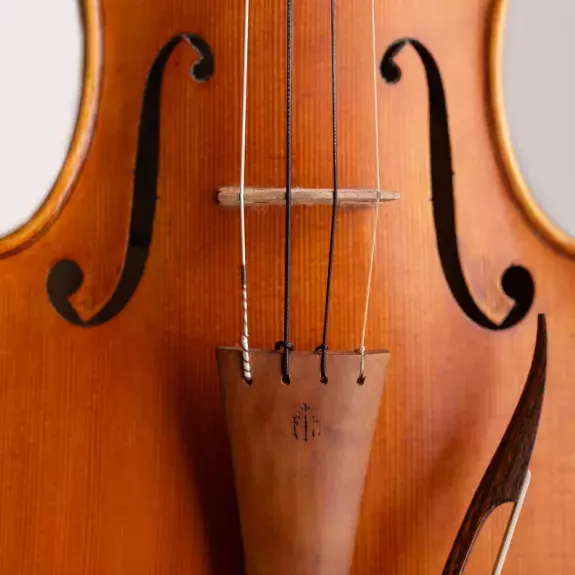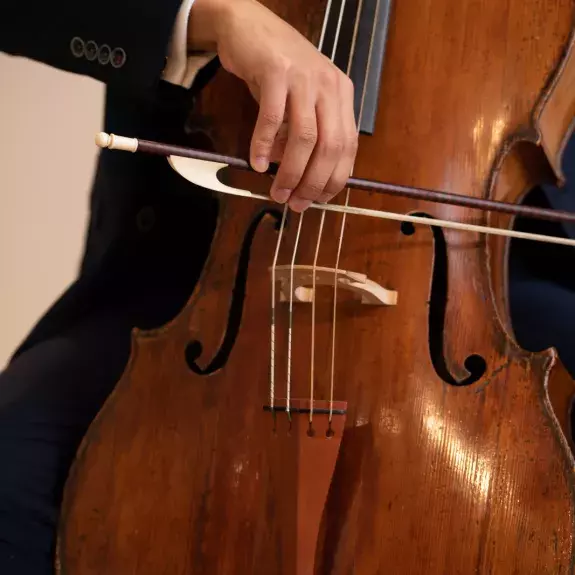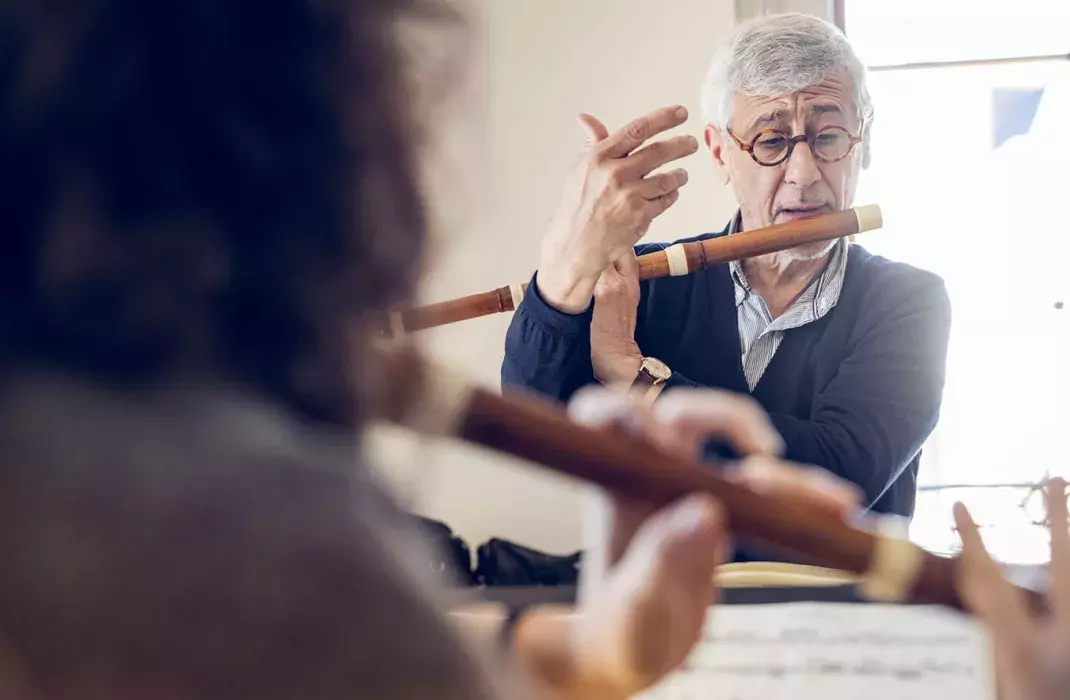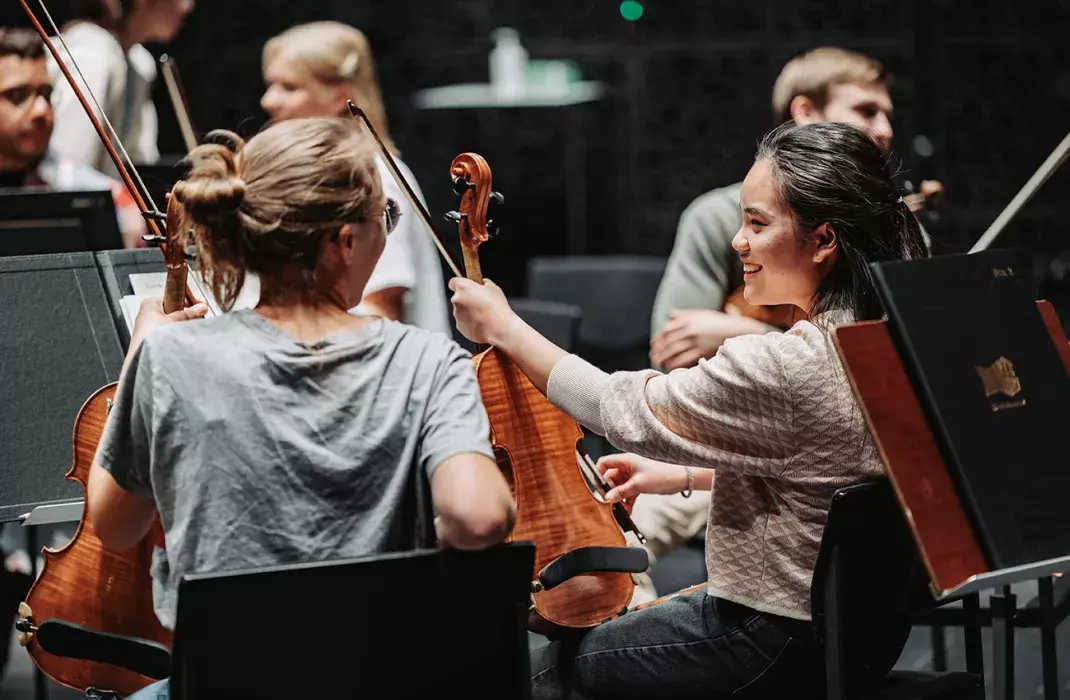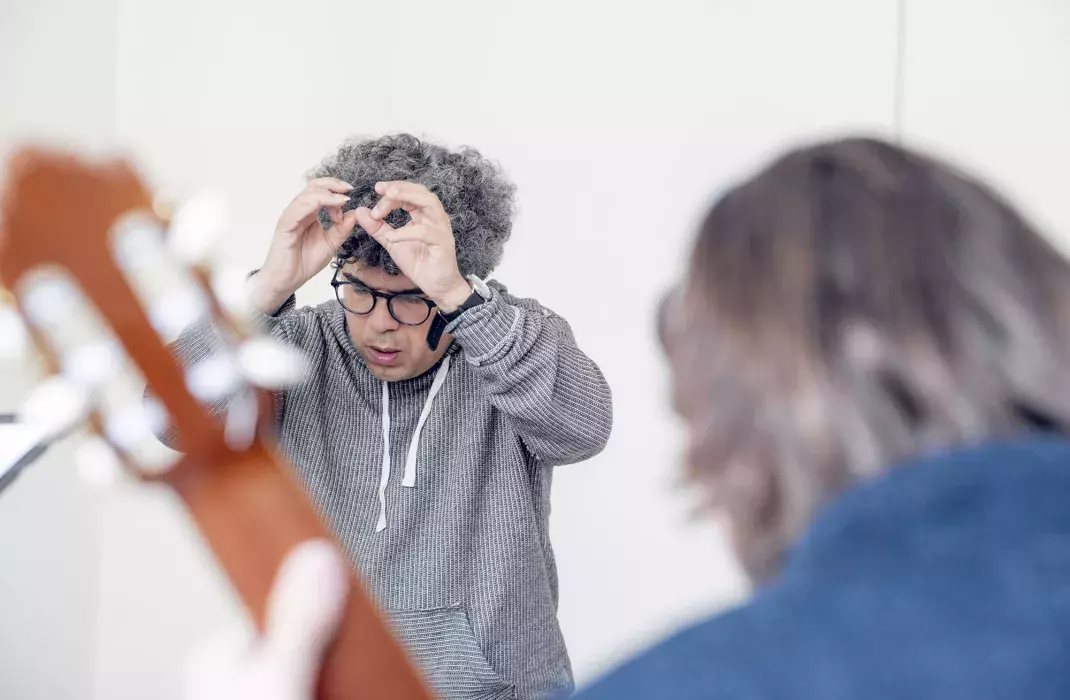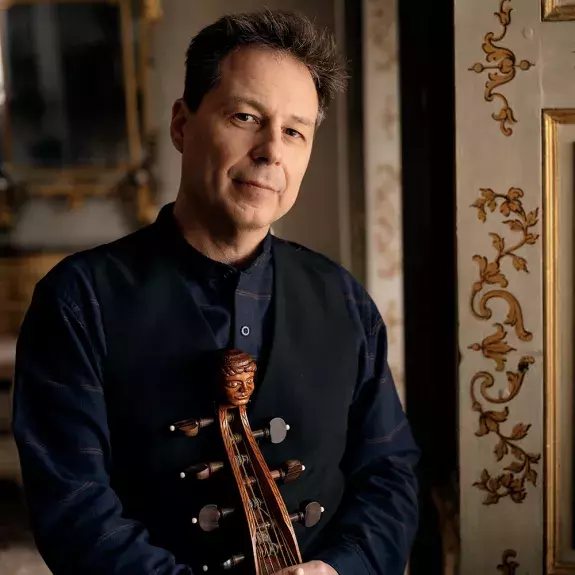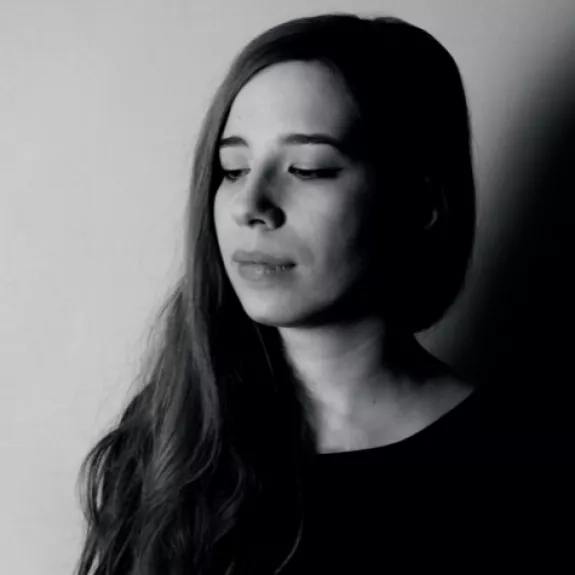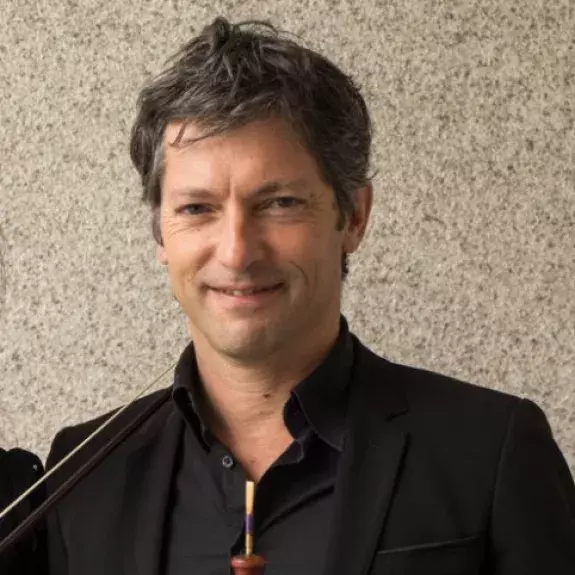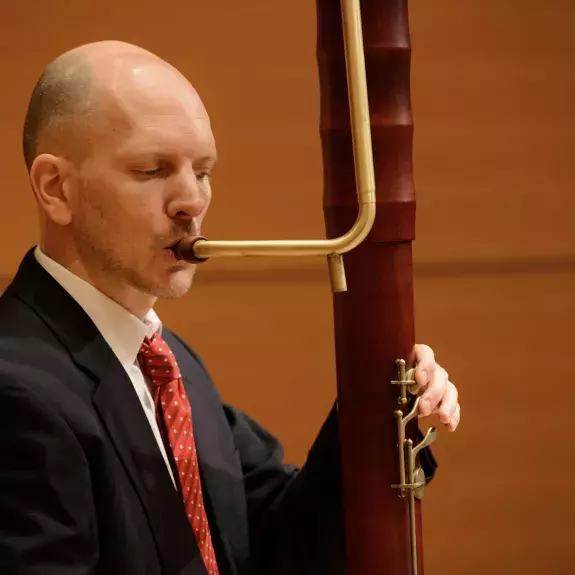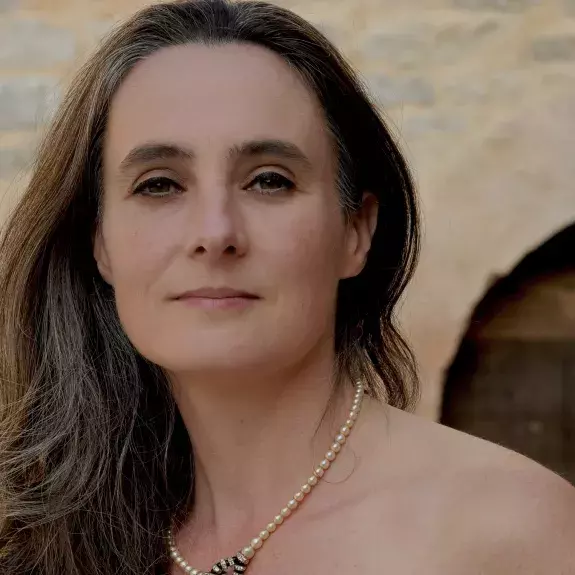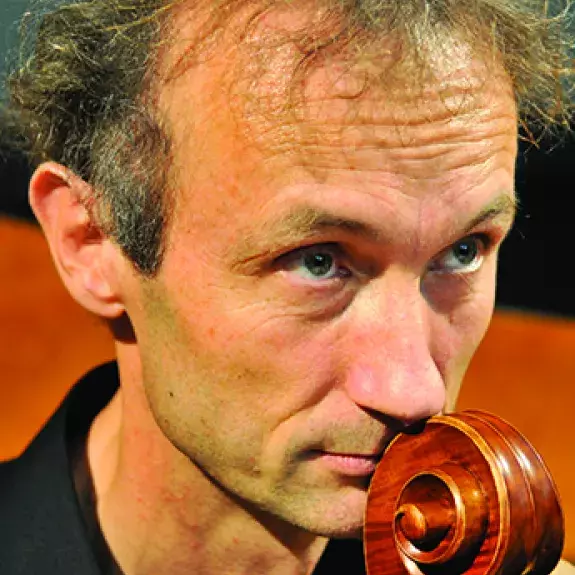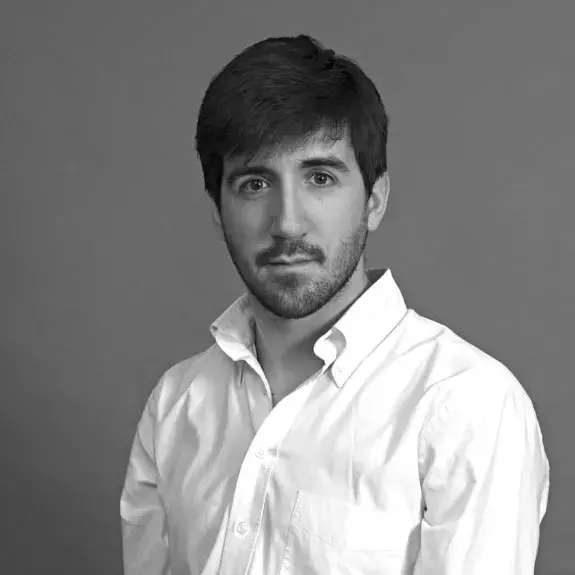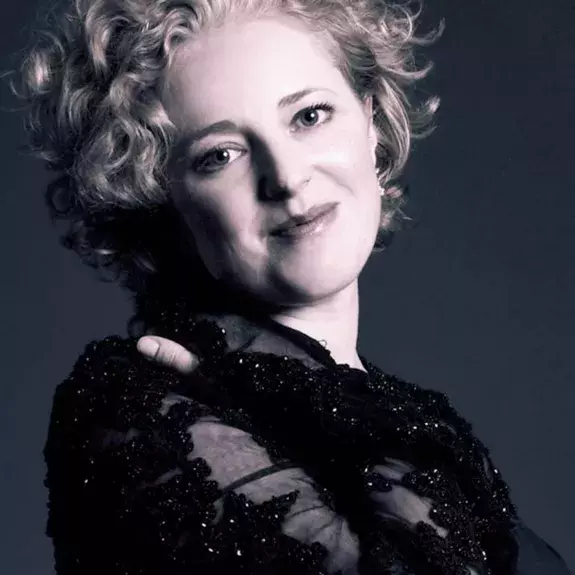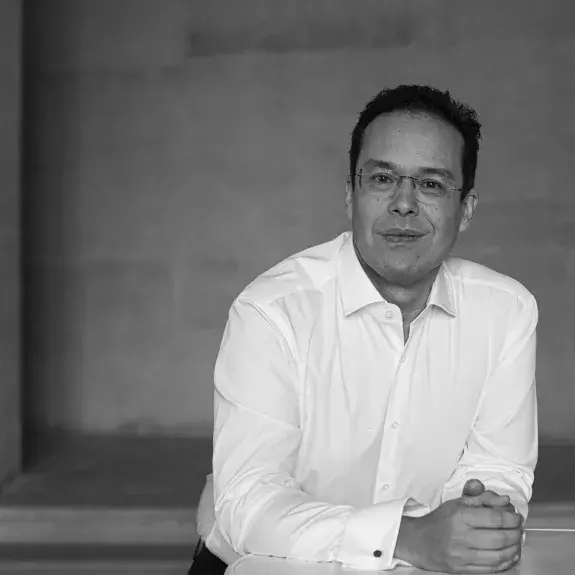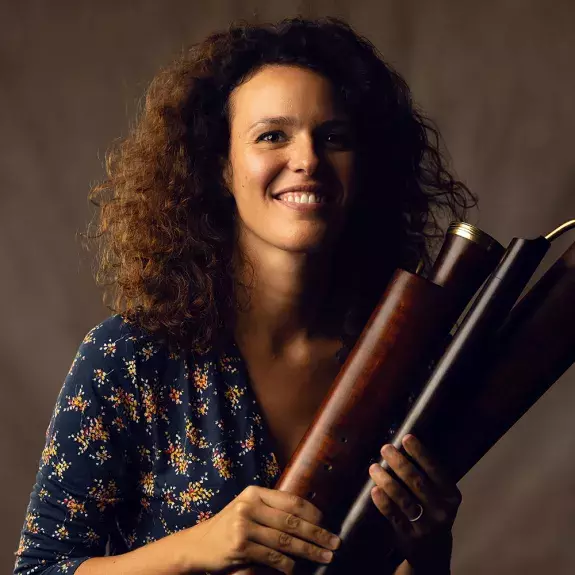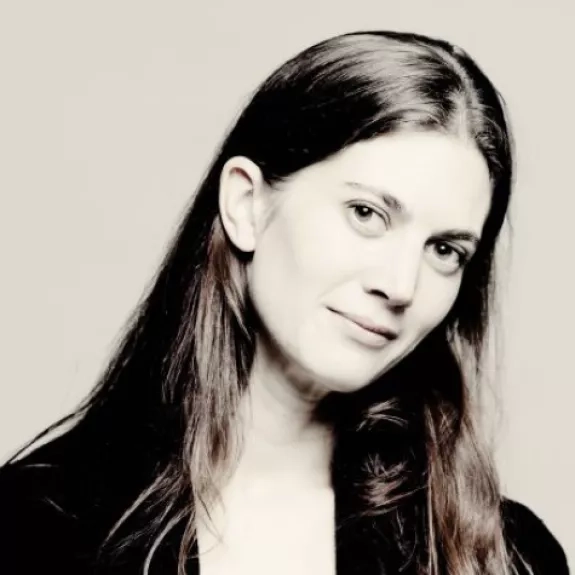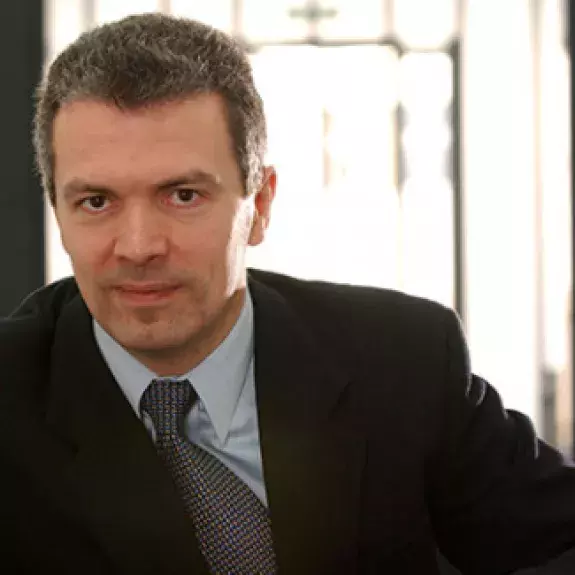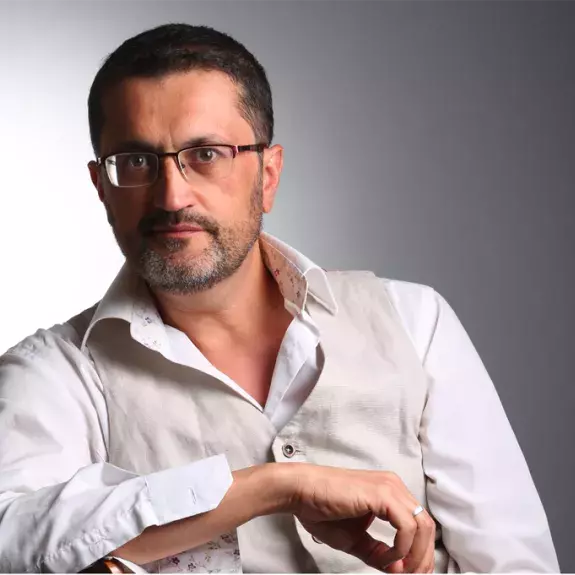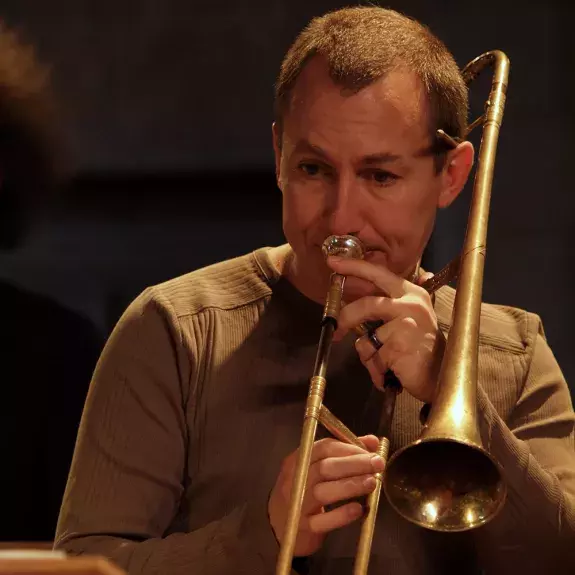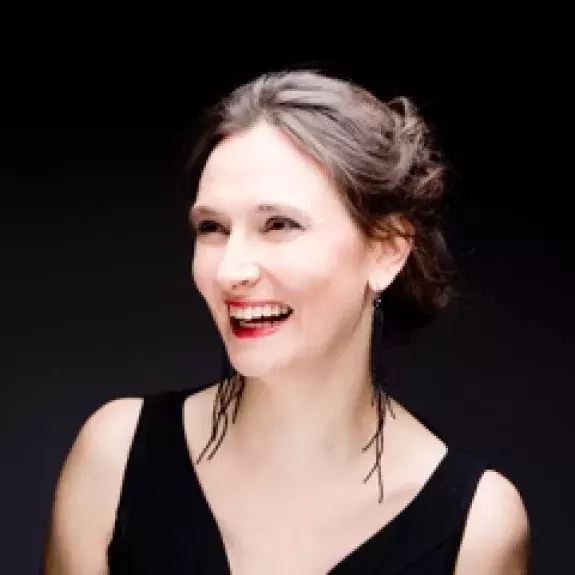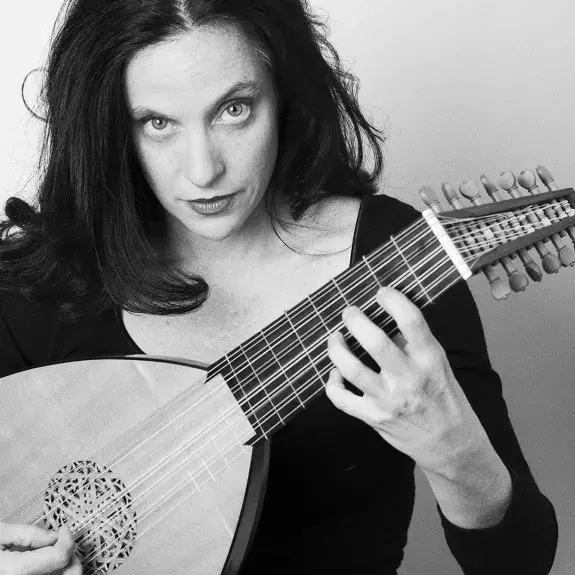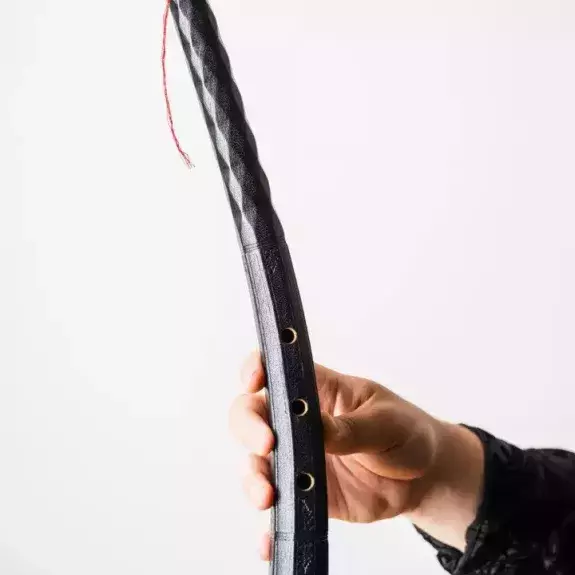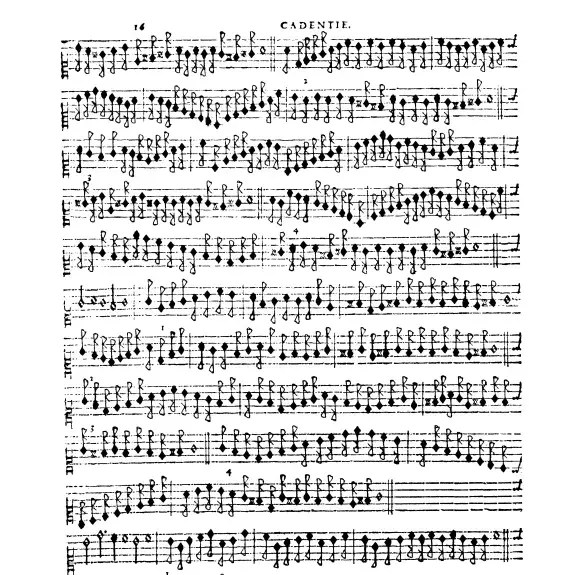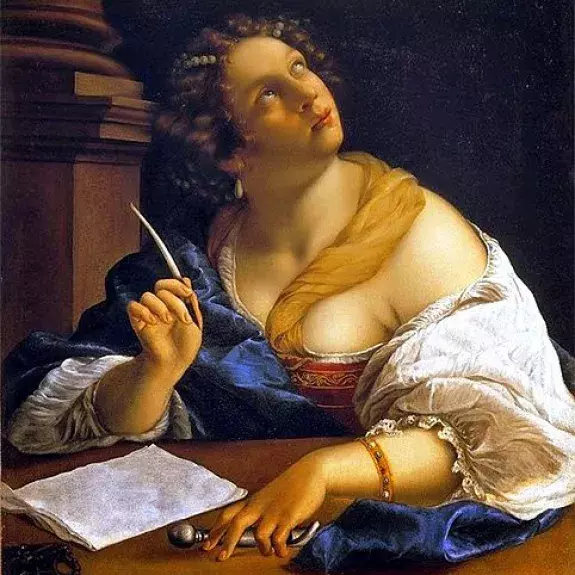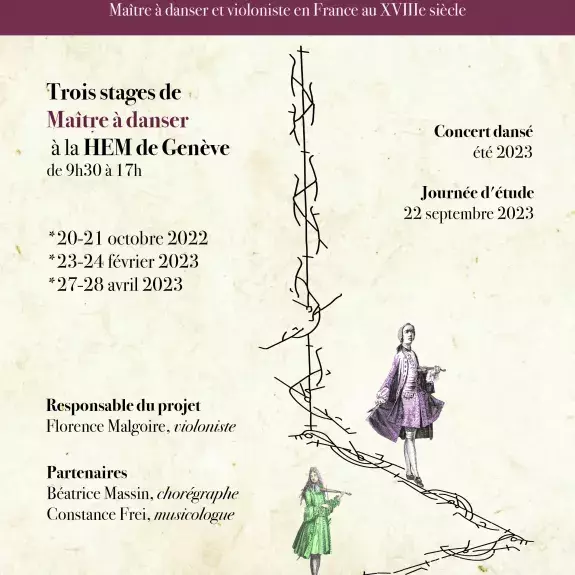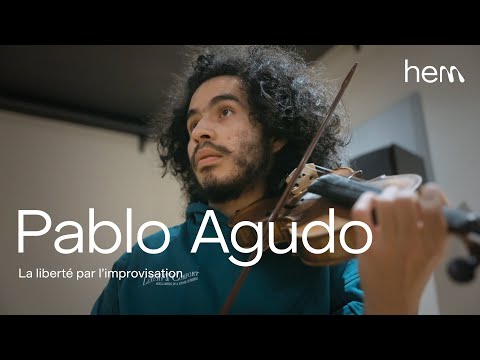Guido
Balestracci
Professor of Viola da Gamba - Ornamentation
Guido Balestracci was born in Turin in 1971. He discovered the viola da gamba at the age of five within his family environment. After completing his studies at the Schola Cantorum in Basel, he began a faithful collaboration with musical personalities such as Paolo Pandolfo and Jordi Savall, performing alongside them and contributing to numerous recordings.
In 1997, he founded the ensemble L’Amoroso to explore the viola da gamba repertoire more personally and to highlight the different instruments of this family. The recording programs "Consonanze Stravaganti," followed by "Seconde Stravaganze" and the transcription of Corelli's Opus V for viola da gamba, are considered pioneering works in the revival of the Italian repertoire for viols and have been awarded by international critics (Diapason d’or, 10 de Répertoire, Prix Goldberg, Premio Vivaldi della Fondazione Cini, Eccezionale de Scherzo, Choc du Monde de la Musique...).
Passionate about research, Guido Balestracci is interested in rare instruments, such as the baryton, as evidenced by a CD dedicated to Haydn's trio Divertimenti, released in 2011.
His interest in the Classical and Romantic periods, particularly for the arpeggione, of which he is one of the few current performers, also falls within this domain. He performs in concerts featuring a program dedicated to the transcription of the Romantic repertoire around Schubert's "Arpeggione" Sonata, which he recorded in 2019.
Since the end of 2021, Guido Balestracci has also been responsible for the research project "Le Vibrato entre 1770 et 1820: un agrément à redécouvrir," which he conducts at the HEM of Geneva in collaboration with Elizabeth Dobbin and Paolo Corsi and in partnership with the CRR of Paris.
He holds the position of professor of viola da gamba and 18th-century ornamentation at the HEM of Geneva and at the CRR of Paris in collaboration with PSPBB and Sorbonne University.
Learn more about Guido Balestracci
Johanna
Bartz
Professeure de traverso
A renowned flutist from northern Germany, Johanna Bartz excels on the international stage. A teacher of Renaissance flute at the Schola Cantorum Basiliensis since 2016, she also conducts astrophil & stella and performs as a guest musician with prestigious ensembles across Europe. Versatile, she explores contemporary and electronic music, while sharing her expertise at conferences at renowned institutions (Mozarteum in Salzburg, UdK in Berlin, ESMAE in Porto, ESMUC in Barcelona).
In parallel with her academic commitments, Johanna Bartz co-founded the artist platform ‘Phosphenes’ and has made a lasting mark in music recording, contributing to numerous CDs and radio programmes. Winner of multiple international awards, she will bring her musical excellence to the Geneva University of Music in September 2024, inspiring students with her passion.
Johanna Bartz's website
Patrick
Beaugiraud
Professor of Baroque Oboe
Patrick Beaugiraud studied oboe with César Ognibène, Jacques Chambon, Maurice Bourgue, and Heinz Holliger, before playing for two years with the Orchestre de l'Opéra de Lyon.
He then dedicated himself more particularly to the interpretation of Baroque, Classical, and Romantic repertoires on original instruments. Appreciated by the best Baroque ensembles, he is notably sought after by the Ensemble Baroque de Limoges, Les Musiciens du Louvre, the Amsterdam Baroque Orchestra, the Bach Collegium Japan, and the Ricercar Consort. His discography is rich with recordings of oboe concertos by Bach, Vivaldi, Haydn, and numerous Bach cantatas, under the direction of Ton Koopman, Masaaki Suzuki, Sigiswald Kuijken, or Leonardo Garcia Alarcon. More recently, he has recorded Handel's cantatas, Mozart's quartet with oboe, and Couperin's "Les Goûts Réunis." He is also a founding member of the wind quintet Le Concert Impromptu.
Holder of the State Diploma, he has taught modern oboe at the music schools of Macon, Montélimar, and the CNSM of Lyon before joining the Haute école de musique de Genève to teach Baroque oboe.
Daniele
Bragetti
Professor of Recorder
Born in 1965, Daniele Bragetti obtained his diploma in recorder at the Civica Scuola di Musica di Milano and the Sweelinck Conservatorium in Amsterdam, studying with professors such as Nina Stern, Kees Boeke, Marijke Miessen, and Jeanette van Wingerden.
He regularly performs both as a soloist and with various Baroque and Renaissance music ensembles, including Ensemble Baroque de Limoges (conducted by Christophe Coin), Ensemble Elyma (Gabriel Garrido), Ensemble Concerto (Roberto Gini), Academia Montis Regalis (Andrea de Marchi), and Accademia Claudio Monteverdi (Hans Ludwig Hirsch).
He has played in prestigious venues and important festivals, such as Mito – Settembremusica in Milan, Festival Oude Muziek Utrecht, Musica e Poesia a S. Maurizio in Milan, Tokyo Recorder Festival, I Concerti del Quartetto in Milan, UNESCO per Venezia, Tokyo Opera City, and Casals Hall in Tokyo.
Since 1991, Daniele Bragetti has performed in a recorder duo with Seiko Tanaka, also collaborating with flutists Walter van Hauwe and Antonio Politano. In 2013, he founded the recorder ensemble La Rubertina in Tokyo with Seiko Tanaka.
Daniele Bragetti is also active in the field of contemporary music, with composers such as Michiharu Matsunaga, Luca Cori, and Koji Ueno dedicating numerous works to him.
He has made recordings for Opus 111, Passacaille, Stradivarius, Entrée, Mercury, and Olive Music.
Since 2003, Daniele Bragetti has taught recorder and historical ornamentation at the Civica Scuola di Musica “Claudio Abbado” di Milano. He has been a guest professor at the Haute école de musique de Genève and the Universidad Pontificia de Santiago de Chile.
Since 2016, he has been a professor of recorder at the Haute école de musique de Genève.
Learn more about Daniele Bragetti
Maria Christina
Cleary
Professor of Historical Harps - Basso Continuo on the Instrument (for Harpists)
Originally from Ireland and its harp musical traditions, Maria Christina Cleary is internationally recognized as a virtuoso with an exceptionally sensitive and beautiful touch. She is one of the few specialists in medieval harp, promoting innovative techniques, particularly pedal techniques used exclusively on single-action harps. These techniques have enabled her to develop a new approach to interpreting medieval and Renaissance works. She studied in Dublin, London, The Hague, and Brussels with Susanna Mildonian, as well as at Leiden University in the Netherlands. She has won numerous awards, including the Utrecht Early Music Competition, the Nippon International Harp Competition, and the Dutch National Harp Competition.
Maria Christina Cleary regularly records CDs such as "So mach’ die Augen zu," the first CD of Louis Spohr with original instruments and musical techniques of the time. She produced another CD, "Le Grazie del Violino," with her duo Arparla, featuring works by 17th-century Italian composers such as Frescobaldi, Merula, Uccellini, and Rossi, where she exclusively uses the harp as an accompaniment or solo instrument.
She teaches medieval harp, improvisation, and chamber music with both ancient and modern harps. After teaching at the Guildhall School of Music in London, the conservatories in Singapore, Brisbane, Venice, Padova, the Krakow Academy of Music, the Sibelius Academy in Helsinki, and the Haute école de musique de Genève, she joined the renowned Urbino Summer Music team in 2016. Maria Christina Cleary regularly gives masterclasses, notably at the Juilliard School of Music in New York.
Learn more about Maria Christina Cleary.
Bruno
Cocset
Professor of Cello
Born in 1963, Bruno Cocset graduated from the Conservatoire National de Région de Tours. He was admitted to the Conservatoire National Supérieur de Musique de Lyon in 1980, where he studied with Alain Meunier, and later with Jean Deplace, leaving his class in March 1983 due to stylistic differences.
He approached the baroque cello and gut string playing as an autodidact and later with Christophe Coin, becoming the first graduate of his class at the Conservatoire National Supérieur de Musique et Danse de Paris (First Prize with unanimous distinction in 1986). He also attended masterclasses by cellist Anner Bijlsma and violinist Jaap Schroeder.
Twenty years of rich experiences and musical collaborations followed: Les Arts Florissants, Mosaïques, Fitzwilliam, Ensemble Baroque de Limoges, Le Concert Français, La Petite Bande, Les Musiciens du Louvre, Les Talens Lyriques, Arsys, Ricercar Consort, l’Arpeggiata, Stradivaria, l’Amoroso, Al Ayre Español, Henri Ledroit, Véronique Gens, Maurice Bourgue, Franz Brüggen, Gustav Leonhardt, Jos Van Immerseel, Jean-Claude Malgoire, Philippe Herreweghe…
His most faithful affiliations are with Il Seminario Musicale by Gérard Lesne (1988-2004), and the Concert des Nations and Hesperion XX-XXI by Jordi Savall (1990-2005). In 1996, he founded Les Basses Réunies and self-produced his first solo recording: the sonatas of Antonio Vivaldi. This disc, welcomed by the Alpha label, received the Vivaldi prize from the Cini Foundation in Venice. About ten other recordings, praised by French and international music critics, led to regular invitations to perform in France, Europe, Quebec, and Russia.
Each of these recording projects is linked to a sound and organological research collaboration with luthier Charles Riché. Nine instruments have emerged from this collaboration. As a musician-researcher, he thus offers a "plural" cello. He is now exclusively dedicated to this path and to teaching. In September 2005, he was appointed Professor of Baroque Cello at the Haute école de musique de Genève.
Learn more about Bruno Cocset.
Lambert
Colson
Professor of Cornetto
Lambert Colson studied with Françoise Defours, Pedro Memelsdorff, Bart Coen, Marleen Leicher, Bruce Dickey, and Gebhard David at institutions including the Koninklijk Conservatorium Brussel, ESMUC in Barcelona, the Schola Cantorum Basiliensis, and the HFK in Bremen.
His collaborations include working with ensembles and conductors such as Scherzi Musicali, Le Poème Harmonique (Vincent Dumestre), Holland Baroque, La Fenice (Jean Tubéry), Pygmalion (Raphaël Pichon), B’rock, Collegium Vocale (Philippe Herreweghe), Correspondances (Sébastien Daucé), Cappella Mediterranea (Leonardo Garcia Alarcon), and Continuum.
He leads his own musical projects, directly derived from research undertaken in recent years with his ensemble InAlto. InAlto's most recent recordings have been critically acclaimed by the European press: Diapason d’Or & Diapason d’Or of the Year 2017, Choc de Classica, 5 stars Rondo Magazin, Joker Crescendo, Clé d’Or Res Musica, and selections of the year for Libération and Le Monde.
He currently teaches cornetto, ensemble music, and ornamentation at the Koninklijk Conservatorium Brussel and the Haute école de musique de Genève.
In his continuous exploration of his instrument, he is pursuing a doctoral program focused on the mute cornett and its use in 17th-century Germany, in a joint project between the Koninklijk Conservatorium and the Vrije Universiteit Brussel. The thesis will be publicly presented in 2024.
He has had several pieces dedicated to him by contemporary composers such as Zad Moultaka, Fabrice Fitch, and Bernard Foccroulle.
Eager for unusual collaborations, he works with choreographer Catherine Contour and explores the practice of hypnosis. He increasingly explores the possibilities offered by his instruments in contemporary music, collaborating with artists like Liesa van der Aa, Shara Nova (My Brightest Diamond), Petur Ben, Mugison, and Efterklang. He is also involved in several jazz and improvisation projects with artists such as Emmanuel Baily, Xavier Rogé, Franck Vagané, Adam Woolf, Jon Birdsong, and Eric Vloeimans.
Learn more about Lambert Colson.
Elizabeth
Dobbin
Head of the Early Music Department
Elizabeth Dobbin is a passionate opera singer, artistic researcher, and dedicated teacher. She began her musical studies in childhood with lessons in theory, piano, and singing. After obtaining degrees with high honors in literature and law, she worked for many years as a lawyer in the finance and corporate law sectors in London and Sydney before turning to her true passion, early music.
She earned her Master's degree from the Royal Conservatory of The Hague in the Early Music Department and has regularly performed as a soloist and chorister in oratorio and opera, as well as in recitals across Europe with prominent names in Baroque music. With the ensemble Le Jardin Secret, she won the first prize and jury prize at the Early Music Network International Young Artists' Competition in York, England. She has participated in numerous radio broadcasts and recorded for labels such as Alpha, CORO, Aliud Records, Pentatone, Fuga Libera, and ORF.
A passionate researcher, she obtained her PhD from Leiden University and the Orpheus Institute with a thesis on vocal practice in late 17th-century France, particularly in Parisian salons.
With over twenty years of teaching experience, she is regularly invited to give lectures and masterclasses throughout Europe.
Learn more about Elizabeth Dobbin.
Leonardo
Garcia Alarcon
Professor of Maestro al Cembalo - Professor of Elements of Choral Conducting (for Maestro al Cembalo) - Madrigal Ensemble
Argentinian conductor, harpsichordist, and composer Leonardo García Alarcón has become a sought-after figure by major musical and opera institutions, from the Opéra de Paris to the Teatro Colón in Buenos Aires and the Grand Théâtre de Genève, where he began his career.
After studying piano in Argentina, Leonardo García Alarcón moved to Europe in 1997 and joined the Conservatoire de Genève in the class of harpsichordist Christiane Jaccottet. Under the guidance of Gabriel Garrido, he ventured into Baroque music. In 2005, he founded his ensemble Cappella Mediterranea to explore Italian, Spanish, and South American Baroque music, a repertoire that has since expanded significantly. In residence at the Festival d’Ambronay, he achieved his first successes there, notably with the 2010 rediscovery of an oratorio by Michelangelo Falvetti: "Il Diluvio Universale." That same year, he took the direction of the Chœur de Chambre de Namur, recognized as one of the best Baroque choral ensembles today, and in 2014, he founded the Millenium Orchestra, focusing primarily on the works of Handel.
Leonardo García Alarcón is also credited with the rediscovery of numerous operas by Cavalli, such as "Eliogabalo" at the Opéra de Paris in 2016, "Il Giasone" in Geneva, "Elena" and "Erismena" at the Festival d’Aix-en-Provence in 2017, and at the Opéra de Dijon: "El Prometeo" by Antonio Draghi in 2018, for which he rewrote the missing music of the third act, "La Finta Pazza" by Francesco Sacrati in 2019, and "Il Palazzo Incantato" by Luigi Rossi in late 2020, before its revival in Nancy and Versailles at the end of 2021.
In 2022, he conducted a new production of Lully's famous "Atys," staged and choreographed by Angelin Preljocaj in Geneva and then in Versailles. Shortly after, he conducted Bach’s "St. Matthew Passion" with Cappella Mediterranea at La Seine Musicale and the Dijon auditorium, receiving high praise from critics. He returned to the Festival d’Aix-en-Provence in July with the successful production of Monteverdi’s "L'Incoronazione di Poppea," directed by Ted Huffman. In September 2022, he made his debut conducting the Concertgebouw Orchestra of Amsterdam for their annual gala, performing Handel’s "Acis and Galatea" (orchestrated by W.A. Mozart). This year also marked a new chapter in his career with the creation of his oratorio "La Passione di Gesù," his first major contemporary composition, warmly received by audiences at the Festival d’Ambronay and Victoria Hall in Geneva, with upcoming performances at the Festival de Saint-Denis and Grand Manège de Namur.
As a conductor and harpsichordist, he is invited to festivals and concert halls worldwide. In November 2018, he conducted Monteverdi’s "Orfeo," directed by Sasha Waltz, at the Staatsoper Berlin and is a regular guest of Les Violons du Roy in Canada, the Orchestre Philharmonique de Radio France, and the Gulbenkian Orchestra. He was recognized as the best conductor in the 2019 Forum Opéra rankings after his triumphant direction of "Les Indes Galantes" at the Opéra Bastille.
Leonardo García Alarcón divides his time between France, Belgium, his native South America, and Switzerland, where he obtained citizenship. He places great importance on education, serving as a professor of the Maestro Al Cembalo class at the Haute école de musique de Genève since 2002.
In 2020, he took on the directorship of La Cité Bleue, a 300-seat performance venue in Geneva currently under renovation, set to open in 2024, with its programming beginning in 2023 with an initial "off-site" season.
His prolific discography is widely acclaimed by critics. In 2021, he released "Rebirth" (Sony Classical) with Sonya Yoncheva; "Lamenti & Sospiri" (Ricercar) with Mariana Flores and Julie Roset; Monteverdi’s "Orfeo" (Alpha Classics) with Valerio Contaldo, and "Bach before Bach" (Alpha Classics) with violinist Chouchane Siranossian. In 2022, he released Handel’s "Semele" with Millenium Orchestra and the Chœur de Chambre de Namur (Ricercar), followed by the world premiere recording of Sacrati’s "La Finta Pazza" (Versailles Spectacles). In 2023, "Amore Siciliano" (Alpha Classics), a project he conceived from popular and scholarly music of 17th- and 18th-century Italy, is set to be released.
Leonardo García Alarcón is a Chevalier of the Order of Arts and Letters.
Learn more about Leonardo García Alarcón.
Giulia
Genini
Professor of Baroque Bassoon
Born in Lugano, Switzerland, Giulia Genini began her recorder studies at the Conservatorio della Svizzera Italiana with Giorgio Merati. Her interest in early music and period instruments led her to Basel, where she continued her studies at the Schola Cantorum Basiliensis with Conrad Steinmann. At the same time, she began studying the dulcian and baroque bassoon with Josep Borras and Donna Agrell. In 2008, she received her recorder diploma (performance and pedagogy) with distinction, and in 2010, her Master's degree in historical performance practice in baroque bassoon and dulcian, also with distinction.
She performs as a recorder player and bassoonist with numerous international ensembles and works with renowned conductors. As a soloist, she has performed with the Venice Baroque Orchestra under the direction of Andrea Marcon at the Menuhin Festival Gstaad, Schleswig Holstein Musikfestival, Settimane Musicali di Ascona, Geneva Victoria Hall, Carinthischer Sommer Festival Ossiach, and New York's Carnegie Hall.
Since 2015, she has often been invited as a guest coach at the Conservatorio della Svizzera Italiana in Lugano, coordinating wind sections for orchestral projects on historical performance practice. She also works there as a co-director of studies in the field of performance.
She is a founding member and artistic director of the ensemble Concerto Scirocco as well as the artistic director of the Festival CaronAntica.
Learn more about Giulia Genini.
Sophie
Gent
Professeure de violon baroque
La violoniste australienne Sophie Gent a étudié au Conservatoire royal de La Haye avec Ryo Terakado. Vivant actuellement en France, Sophie se produit régulièrement, comme premier violon, avec les ensembles les plus renommés du moment, comme le Collegium Vocale de Gand (Philippe Herreweghe), le Freiburger Barockorchester, Ricercar Consort (Philippe Pierlot), Pygmalion (Raphaël Pichon), Arcangelo (Jonathan Cohen), entre autres. Elle joue en récital et en musique de chambre, souvent avec Bertrand Cuiller, Kristian Bezuidenhout, Jean Rondeau, Maude Gratton et Pierre Hantaï.
Professeure de violon baroque au Conservatoire d’Amsterdam de 2011 à 2014, elle a également donné des masterclasses au Conservatoire d’Anvers, à l’Atelier de musique ancienne de Jérusalem, à l’Abbaye aux Dames de Saintes. Depuis 2012, elle enseigne à l’Académie de musique ancienne à Vannes et, depuis 2022, au Stage de musique ancienne à Cluny (Ensemble Masque). Elle est actuellement professeure de violon baroque à la Haute école de musique de Genève.
Sophie joue un violon de Jacob Stainer de 1676.
Pierre
Goy
Professor of Fortepiano, Clavichord, and Historical Keyboards
Pierre Goy studied piano with Fausto Zadra, Edith Murano, Esther Yellin, and Vlado Perlemuter, and attended masterclasses with Jörg Demus and Nikita Magaloff. A laureate of several competitions, he has performed concerts in Europe and the United States. Passionate about the expressive possibilities of historical instruments, he attended seminars by Paul Badura-Skoda and Jesper Christensen on rubato.
Pierre Goy strives to render the music of each era with the corresponding instrument. He forms a duo with Nicole Hostettler, performing on two fortepianos, the harpsichord and fortepiano, or two clavichords. They recorded the keyboard works of J. G. Müthel (Cantando 2016). He also recorded Liszt's "Années de Pèlerinage: Première année: Suisse" on a Richard Lipp piano from 1870 (Cantando 9814). For the Lyrinx Srumenti label (LYR 247), he recorded Chopin's early works on a replica of an 1826 Graf fortepiano, a recording unanimously praised by critics (five Diapasons, a Coup de cœur - Revue du son). His recording "Claviers mozartiens" (LYR 2251) won a Diapason d’or, a Coup de cœur, and an Opus d’or – Opus Haute Définition. Recently, with Nicole Hostettler, he recorded the two-keyboard works of Armand Louis Couperin on the Taskin fortepiano and the Ruckers-Taskin harpsichord at the Musée de la Musique.
In chamber music, he collaborates with members of "Il Giardino Armonico," the Quatuor Mosaïques, and the Ensemble Baroque de Limoges. He has published various articles on performance practice and instrument making.
Pierre Goy is the instigator of the Rencontres Internationales Harmoniques de Lausanne, which has gathered instrument makers, musicians, musicologists, and museum curators around historical instruments every two years since 2002.
Learn more about Pierre Goy.
Lucien
Kandel
Professor of Historical Singing - Renaissance Vocal Ensemble
Lucien Kandel, singer and artistic director of the Ensemble Musica Nova, has specialized in early music repertoires after studying classical singing at the CNSMD of Lyon. He honed his skills with Marie-Claude Vallin, Gérard Geay, Dominique Vellard, and others, obtaining his advanced diploma in 1996. He quickly joined prestigious ensembles such as the Huelgas Ensemble, Doulce Mémoire, A Sei Voci, and Les Solistes de Lyon Bernard Têtu.
He has also collaborated with Le Concert Spirituel under Hervé Niquet, Ensemble Jacques Moderne (Joël Suhubiette), and Elyma with Gabriel Garrido. Kandel has participated in numerous contemporary creations, notably with Daniel D'Adamo within Ensemble Poïésis, and has commissioned works from various composers such as Daniele Ghisi, Henry Fourès, and Saed Haddad.
Since 2003, he has led Ensemble Musica Nova, assembling a team of singers to revisit and refine masterworks of the repertoire, including the famous Mass of Machaut. Their recordings have won numerous awards and high praise, including the Diapason d'Or of the Year 2003 and the Editor's Choice from the British magazine Gramophone in 2007.
Since 2011, he has taught historical singing practice at the Haute école de musique de Genève and the DMA. He regularly gives masterclasses in various academies (Royaumont) and conservatories, covering a range from medieval to baroque singing.
Learn more about Lucien Kandel
Stefan
Legee
Professor of Sackbut
Stefan Legée began studying trombone in Reims with Amédé Grivillers before entering the Conservatoire National Supérieur de Musique de Paris, where he obtained a first prize in trombone unanimously. He received the Certificate of Aptitude in trombone in 1985 and won third prize at the International Competition in Prague in 1987. A member of the brass quintet Magnifica from 1985 to 1990, he won several international prizes with this ensemble (Baltimore and Narbonne). In 1996, he obtained a certificate of advanced studies in sackbut with high honors at the CNSM of Lyon.
From 1985 to 2006, Stefan Legée was the solo trombone of the Orchestre Colonne. He regularly performs with the Concerto Vocale conducted by René Jacobs, Hespérion XXI led by Jordi Savall, Europa Galante under Fabio Biondi, La Fenice by Jean Tubéry, the Sacqueboutiers de Toulouse, and the Concert Brisé led by William Dongois. He is also actively involved in contemporary music, playing with ensembles such as Erwartung (Bernard Desgraupes), Sine Qua Non (Nicolas Brochot), and Ars Nova (Philippe Nahon). In 1996, he premiered Dominique Probst's concerto for trombone and string orchestra, which was dedicated to him. He participated in concerts with Ensemble 2e2m from 2002 to 2005.
Numerous recordings document his work. These include Ex Libris with La Fenice on Opus 111, L’âge d’or du cornet with the Concert Brisé and William Dongois on K 617, the Passione di Jesù by Caldara with Fabio Biondi for Virgin Veritas, and a monograph on Philippe Hersant with Ensemble Ader for Musique Française d’Aujourd’hui.
Stefan Legée has given numerous masterclasses in sackbut. He teaches trombone and sackbut at the Conservatoire à Rayonnement Régional de Saint Maur and sackbut at the Haute école de musique de Genève.
Learn more about Stefan Legée.
Béatrice
Martin
Professor of Harpsichord
Born in Annecy, Béatrice Martin began studying harpsichord at the age of six. Her musical journey led her to study with prominent harpsichordists such as Christiane Jaccottet at the Conservatoire de Musique de Genève, Kenneth Gilbert, and Christophe Rousset at the Conservatoire National Supérieur de Musique de Paris. She obtained numerous first prizes with highest honors and completed an advanced cycle of studies there. She also received valuable guidance from Huguette Dreyfus, Ton Koopman, and Lars-Ulrik Mortensen during masterclasses.
In 1998, she won first prize at the International Harpsichord Competition in Bruges, along with the Audience Prize and the Bärenreiter Prize. The following year, she was named a Revelation by ADAMI at MIDEM in Cannes.
Highly regarded for her skills as a continuo player, she has performed at numerous festivals and with a variety of ensembles. She has been a close collaborator with William Christie and Les Arts Florissants for twenty years.
Recognized for her teaching abilities, Béatrice Martin established the harpsichord class at the Escola Superior de Música de Catalunya in Barcelona and currently serves as a guest professor at the Juilliard School in New York.
In 2000, Béatrice Martin co-founded Les Folies françoises with Patrick Cohën-Akenine, actively contributing to its development.
Learn more about Béatrice Martin.
Laura Monica
Pustilnik
Professor of Lute - Basso Continuo on the Instrument (for Lutenists)
After studying guitar and piano at the Conservatorio Nacional Lopez Buchardo in Argentina, Mónica Pustilnik completed her training in 2010 with a Master of Arts at the Schola Cantorum in Basel under Hopkinson Smith. She specializes in the baroque and renaissance repertoire for lute and completed her training with Jesper Christensen for basso continuo on the lute and harpsichord, Rolf Lislevand at the Musikhochschule in Trossingen, Germany, Michel Corboz in choral conducting at the Conservatoire Supérieur de Musique de Genève, and Jordi Mora in orchestral conducting in Barcelona.
Mónica Pustilnik is very active as a soloist, chamber musician, and in opera or oratorio productions. She regularly performs and records with renowned ensembles such as Le Concert d’Astrée (dir. Emmanuelle Haïm), La Cappella Mediterranea (dir. Leonardo García Alarcón), Les Musiciens du Louvre (dir. Marc Minkowski), Les Talens Lyriques (dir. Christophe Rousset), Concerto Vocale (dir. René Jacobs), Ensemble Elyma (dir. Gabriel Garrido), Les Arts Florissants (W. Christie), and many others.
Mónica Pustilnik has assisted in the musical direction of Cavalli’s Eliogabalo at the Opéra Garnier in Paris, Cavalli’s Elena at the Festival d’Aix-en-Provence, Monteverdi’s L’Orfeo at the Opéra de Lille, Cavalli’s Hipermestra at the Utrecht Early Music Festival, and L’Incoronazione di Poppea at the Haute école de musique de Genève. She has performed in recitals at the Konzerthaus in Vienna, the Poznan Festival (Poland), Ravello (Italy), Freunde Alter Musik Basel, and has developed numerous chamber music programs at the Opéra de Lille. In 2014, she directed performances of Cavalli’s Elena at the Opéra de Nantes and Angers.
Mónica Pustilnik records for the labels Harmonia Mundi, Naïve, Virgin, Arcana, Glossa, and K617. Her solo recording, featuring works by Alessandro Piccinini for the Accent label in 2014, was highly praised by critics.
Her pedagogical activities have led her to teach lute, basso continuo, and chamber music at the Escuela Superior de Música de Cataluña in Barcelona, the Conservatorio A. Scontrino in Trapani (Italy), and the Conservatoire National Supérieur de Musique et de Danse de Paris. Mónica Pustilnik has been teaching lute at the Haute école de musique de Genève since September 2017.
Learn more about Laura Monica Pustilnik

